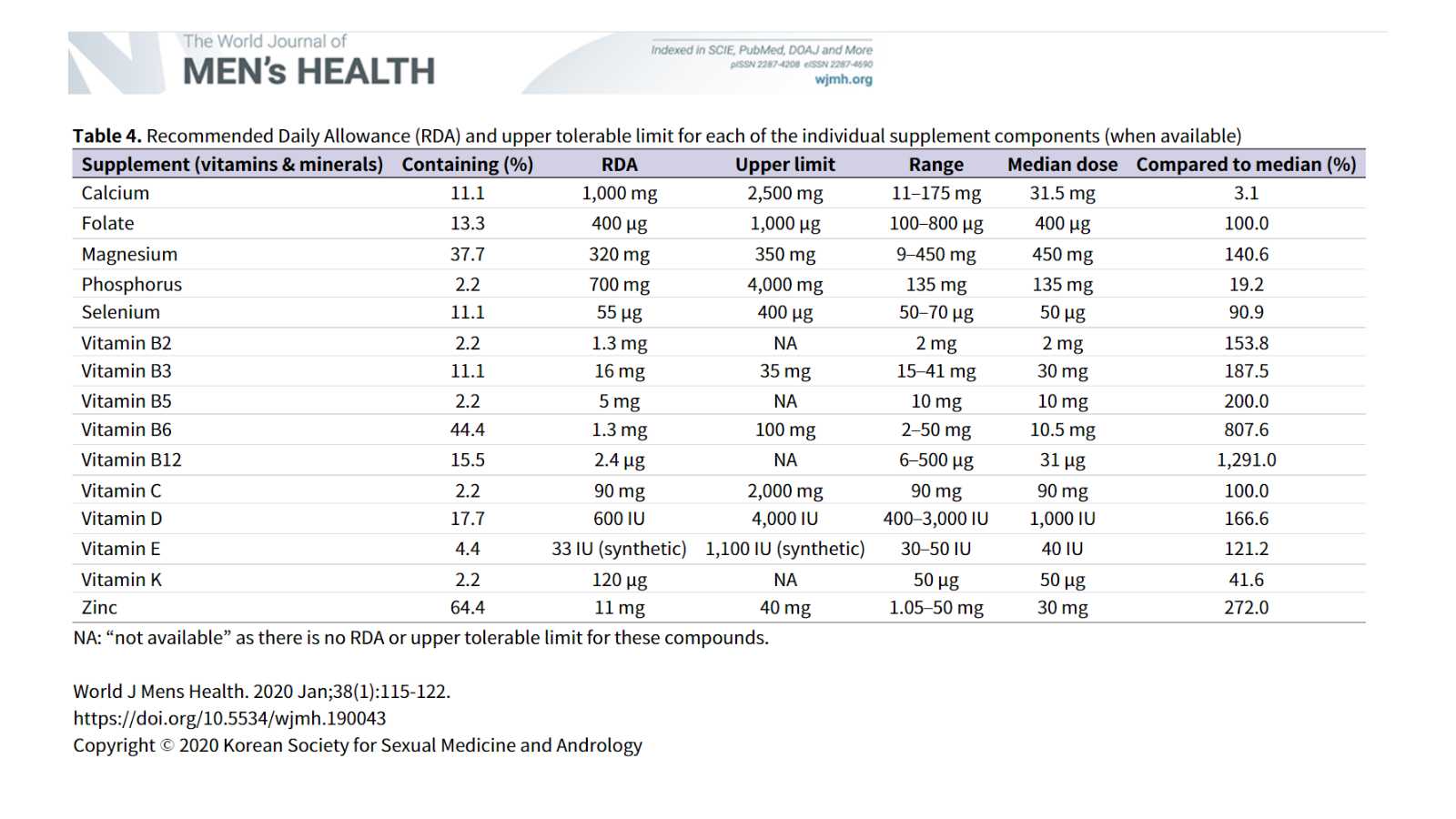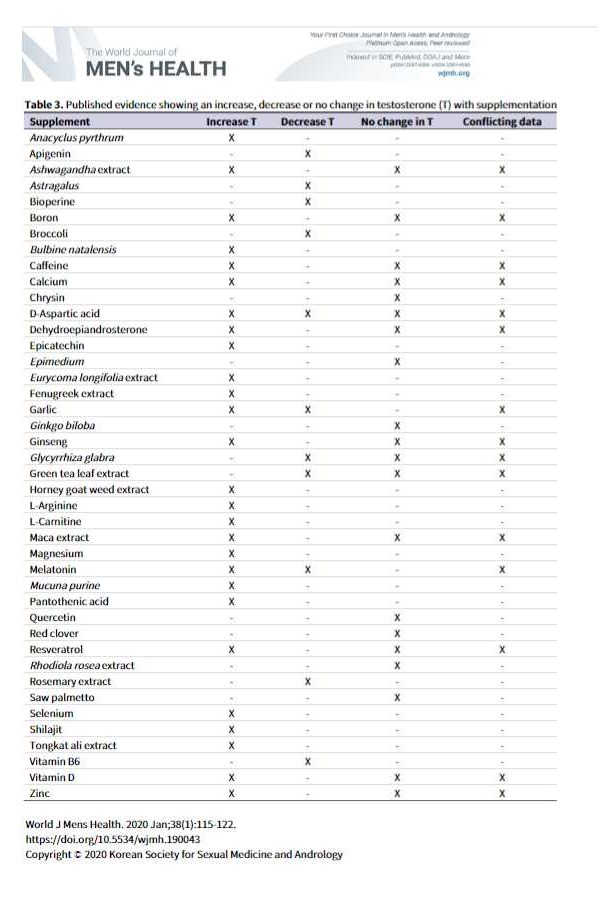Only 1/4 of testosterone boosters work?
According to a research report (https://doi.org/10.5534/wjmh.190043) by a team at the University of Southern California, Los Angeles, only 24.8% of the 90% of supplements claiming to be testosterone boosters have solid scientific data. The table above lists specific supplement names. Supplements that are not on this list are supplements that do not have any data in the first place. There was no data for 67 of the 109 supplements on the market. There was 1 research report for 19 supplements, 2 research reports for 13 supplements, 4 research reports for 3 supplements, 4 research reports for 4 supplements, 5 research reports for one supplement, and 6 research reports for one supplement. Some readers of this blog may be in the business of selling supplements, but this is a scientific and objective evaluation at the moment (in 2020). In addition, when researchers surveyed the supplements on the market, the ingredients contained in them are as shown in the table below in descending order.


Although there does not appear to be any FDA regulation for supplements, stick to the RDAs in the table above.
It is worrisome that two supplements exceeded the FDA upper limit (UL) for zinc. It has been shown to adversely affect HDL cholesterol levels. Similarly, slightly higher doses have been shown to cause anemia and neutropenia, and impaired immune function.
According to the 2018 American Urological Association Guidelines for the Evaluation and Management of Testosterone Deficiency, testosterone replacement therapy (TRT) is recommended for patients with erectile function, decreased libido, anemia, bone density, lean body mass and/or depressive symptoms. TRT may have these effects, but the FDA says: Such claims can only be legally made against pharmaceuticals, not dietary supplements. But despite this FDA statement, “T-booster” supplements have many benefits. Some of these may be related to improving testosterone level, while others are not.
As I mentioned in the previous article, high testosterone levels in the blood tend to lead to a longer life, and TRT after age 60 improves muscle strength. I would like to try it to see if it fits to me. Note that the above study reports are for men. It doesn’t seem to work for women. Now, I would like to investigate how much these supplements increase blood testosterone levels.
To become good at tennis, you need a certain skill, but how to live longer and rejuvenate requires skill. I would like to provide better information using paid papers, so please donate. You can donate with the coffee icon button
